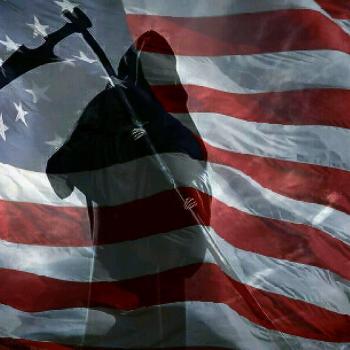Years ago, I had a conversation with a nice woman who held a responsible position in the Episcopalian (or Anglican, as it is called in most countries) missions agency. She kindly agreed to introduce me to several African Anglican bishops. In the course of our conversation, she told me that none of the Christians in the countries where these bishops presided were suffering “pure” persecution, since what they were going through did not come by direct government order. Her contention was that “persecution” could only happen if a government ordered it.
She introduced me to a number of bishops, despite the fact that I did not agree with her on this. They gave me an entirely different story. They had no doubt that what they and their people were undergoing was persecution, many times to the death, for their Christian faith.
One bishop from Northern Nigeria told me that five of his churches had been burned to the ground, that his daughter had been seized, and that a member of one of his parishes was murdered by a mob that put the man over a sawhorse and cut off his head. I can still hear the pain and horror in his voice as he described this to me.
Yet, by the definition I had heard none of this would qualify as persecution.
I had an interesting conversation earlier today with a sophisticated and knowledgeable Catholic who holds the same view. If I understood him correctly, the only persecution that can be officially accepted as such is that which comes as an official action by an official government of the type that occurs in North Korea, Saudi Arabia and China.
I’ve been chewing on this all afternoon. I understand — or at least I think I do — the difference between government-enforced persecution and that which comes from groups of people in a society. There are few things more draconian that government-enforced persecution. However, to label everything that is not government-enforced as “not persecution” just doesn’t jibe with me; not if the horror stories I’ve read and been told are true.
I’ve spent a fair lifetime in the world of political jargoneering, and I have an admittedly cynical view of it. When people parse the meanings of words to avoid the obvious fact that other people are being murdered, it triggers enormous emotional and mental resistance in me.
I tried to find the United Nations definition of persecution by looking online, and all I found were definitions related to refugees. I’ll quote the salient parts as I discuss them.
The first definition, which is a definition of persecution itself, says:
51. … From Article 33 of the 1951 Convention, it may be inferred that a threat to life or freedom on account of race, religion, nationality, political opinion or membership of a particular social group is always persecution. Other serious violations of human rights – for the same reasons – would also constitute persecution. (Emphasis mine.)
I’m not versed in International law, but taken on its face, that seems to say that what the bishop from Nigeria described to me, as well as most of the other things I’ve heard and read, fit this definition of persecution.
The second part of the definition goes to what both the two people who think persecution only occurs at the behest of a government are probably referring to:
65. Persecution is normally related to action by the authorities of a country.
However, the same definition goes on to say:
It may also emanate from sections of the population that do not respect the standards established by the laws of the country concerned. A case in point may be religious intolerance, amounting to persecution, in a country otherwise secular, but where sizeable fractions of the population do not respect the religious beliefs of their neighbours. Where serious discriminatory or other offensive acts are committed by the local populace, they can be considered as persecution if they are knowingly tolerated by the authorities, or if the authorities refuse, or prove unable, to offer effective protection.
The violent persecution I’ve described on this blog and heard about in my discussions with people from these countries seems to fit this definition to me.
All this came from a Google search. I may have the wrong definitions. However, it does show that at least part of the United Nations definitions of persecution include situations such as those I have been writing about.
The reason I’m going over this is because I believe that people are being murdered, imprisoned and otherwise mistreated in large parts of the world today because they are Christians. If I am wrong about this, I want to know it.
If, on the other hand, I am right, I intend to persist in calling it out so long as it continues and I am able to say anything about it.
I am trying to understand how we can work around the intractability of legal definitions which narrow the meaning of persecution to the point that it allows things like these and does not call them by name.












